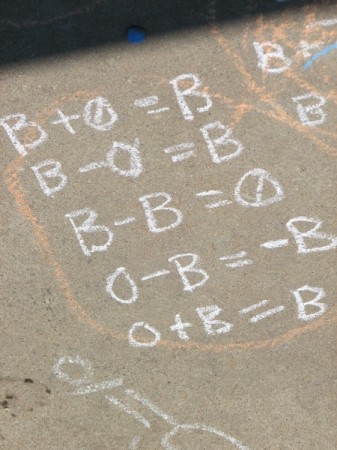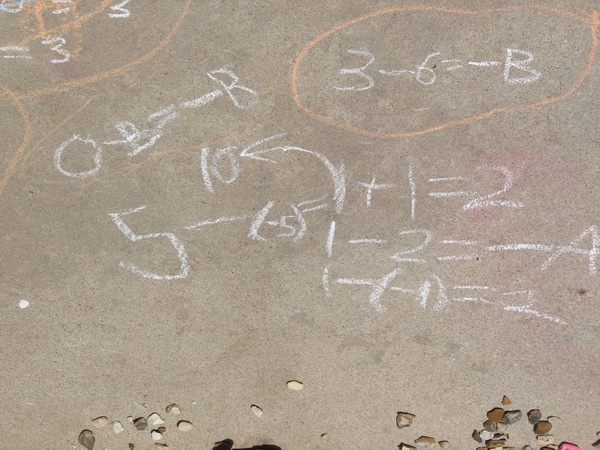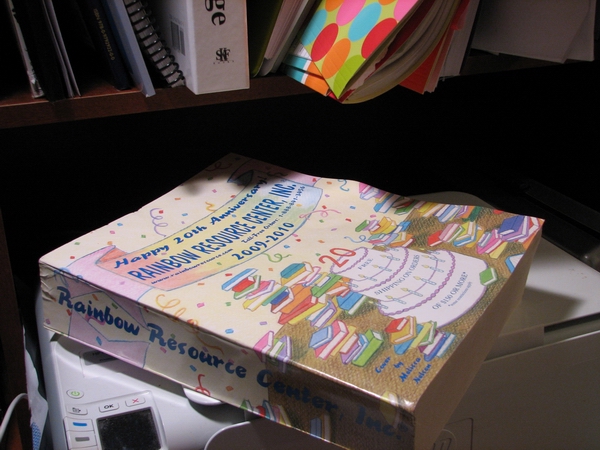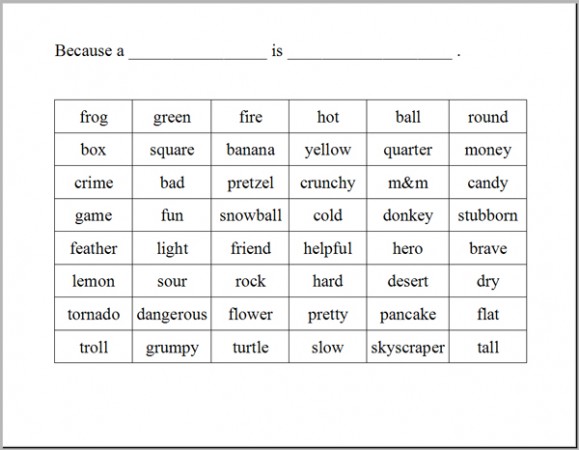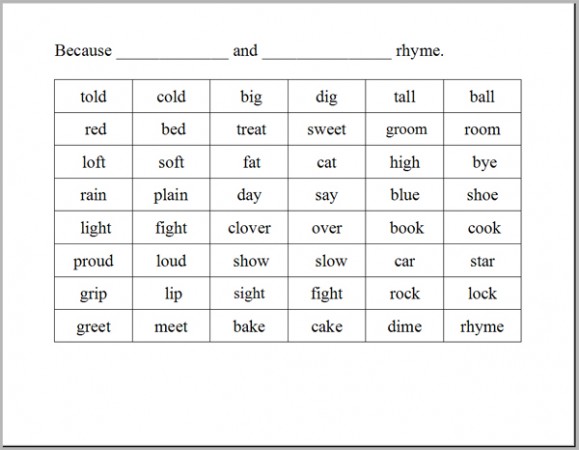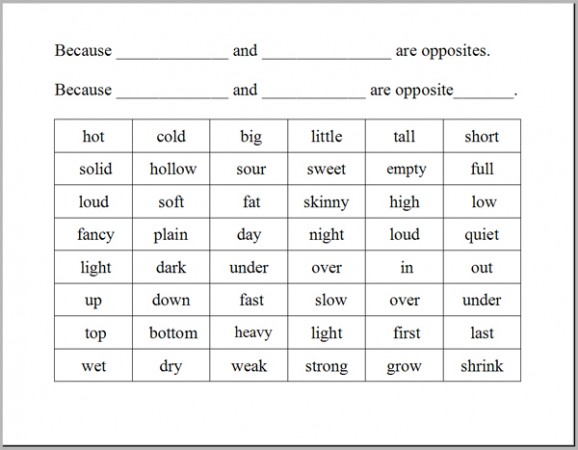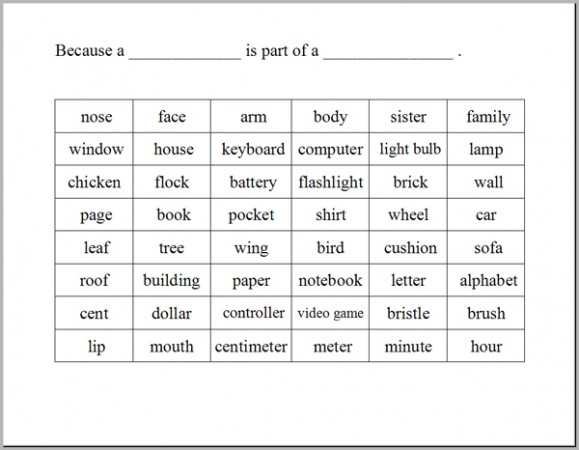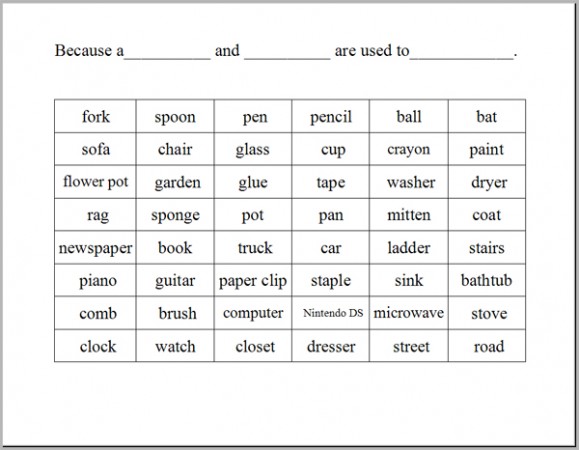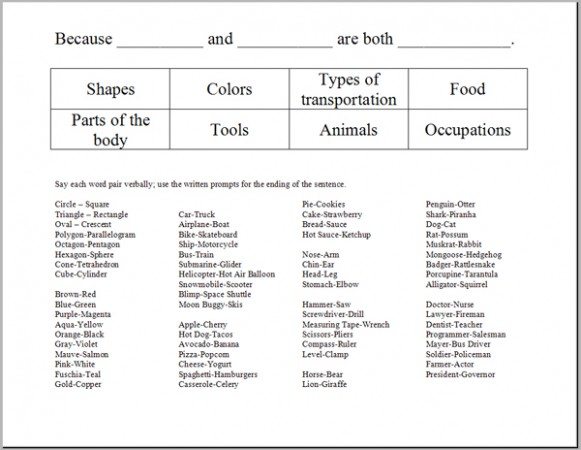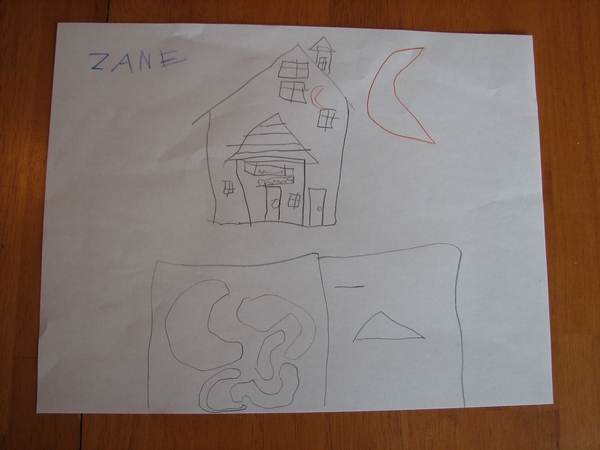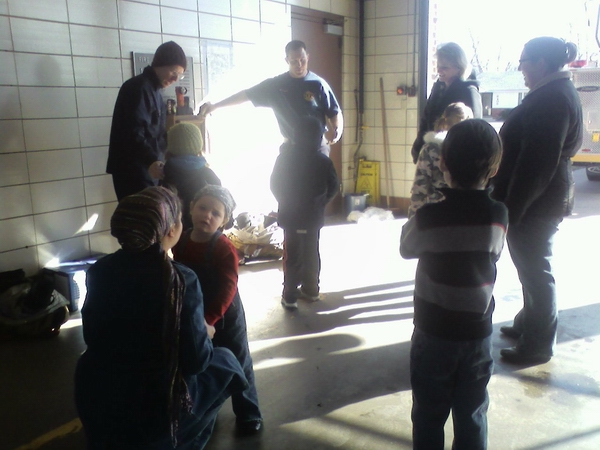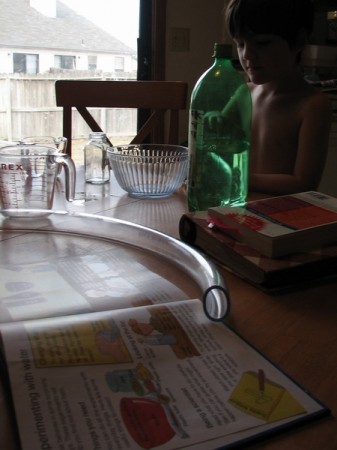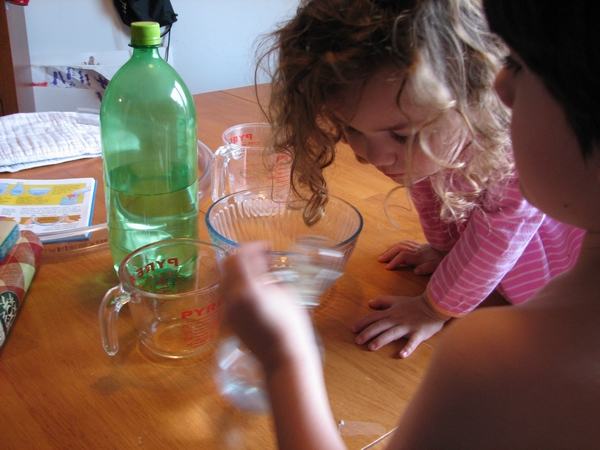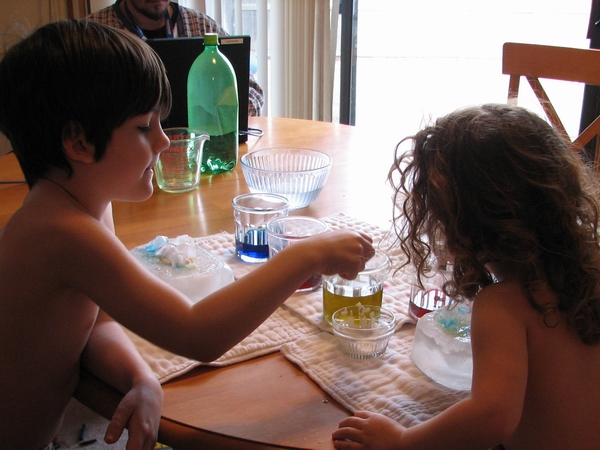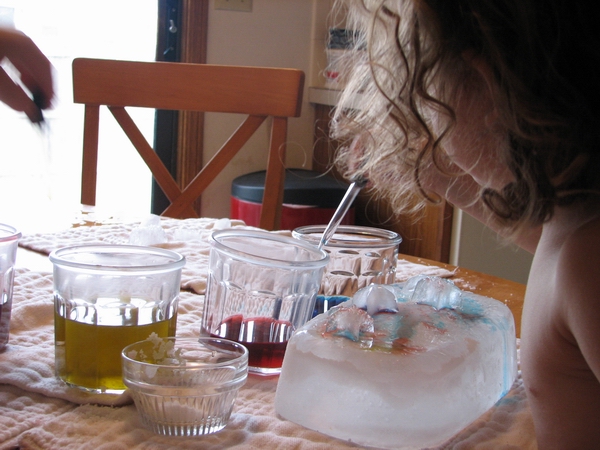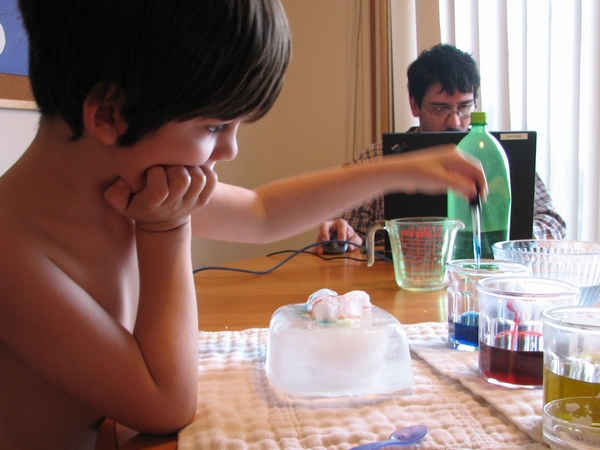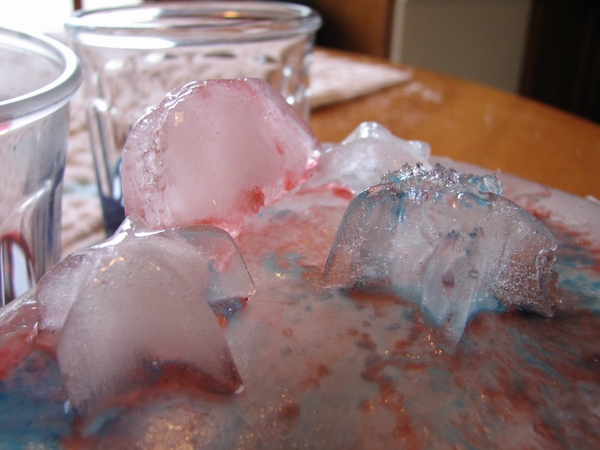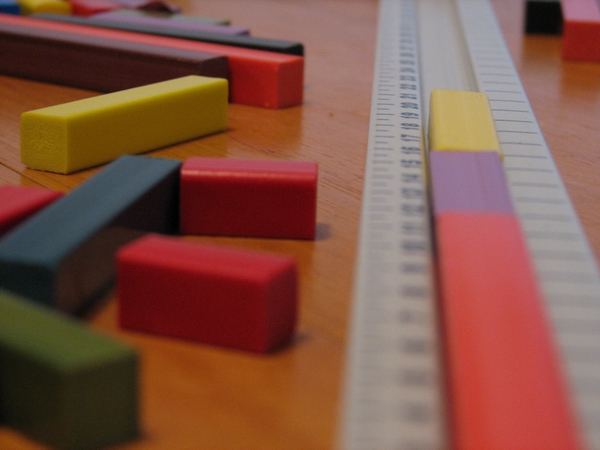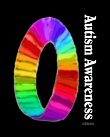Curriculum Books
Moving Beyond the Page: I have stopped doing it how it was designed and use it as a resouce for unit study type things now. It has an abundance of great ideas, but wasn’t working for us in the form it was intended because of his splintered skills. (his math is way above their math, but some of the ideas were too abstract for him to really get…he is a very literal thinker) I still love this series.
Miquon Math: a manipulative-based math using mostly Cuisinarre Rods (I add in some other manipulatives also). Develops mathematical thinking and relies heavily on patterns to understand concepts.
Singapore Math: a traditional math program, used in schools too. More “kill and drill” than Miquon, but it helps me to know he isn’t missing anything and helps him learn how to manage more formal problem solving (so he isn’t lost if presented a more traditional style test)
Visualizing and Verbalizing: A Lindamood-Bell curriculum. I think it was developed for dyslexia originally, but is also great for language delayed kids. Sets him up to be able to organize his memory, describe things, and looks to be a program that will set him up to understand how to develop writing (as in language arts/English classes) by helping him learn to manage the “wh” questions. (this is the project with the pieces of felt and color coded words I was working on)
Handwriting Without Tears: the gold standard for handwriting programs for kids with motor planning difficulities or who need a multi-sensory approach. Used in a lot of schools.
Activity Books
Stepping Stones: Critical Thinking puzzles. Most of these are way too abstract for him, so it isn’t going to be used much at this point. Not worth getting at this point, but I already own it.
Critical Thinking Skills: A lot more fun and useful than the Stepping Stones one for Zane. Lots of pattern work.
Free Online Resources
Centre for Innovations in Mathematical Thinking: Gold mine. It’s a math program, but I use it as a supplement for following directions or thinking puzzles. The only down side for those of us in the US is that it uses terms from the UK…like “lorry” for “truck” and spelling “color” like “colour”, but if you are familiar with the terms, no biggie. (I have watched enough Monty Python, Faulty Towers and Are You Being Served to not have any problems with it.)
Color Keys: using color to play piano. They have the first book downloadable for free and it looks really good. I will be starting this in a week or two with Zane (when the little keys to put on the piano arrive…it was cheaper to order them than to make my own). The thing I like about it is that it has great illustrations to explain things and should be able to transition easily into regular music once he gets the concepts down. If I like the first book, there are two more in the series.
Google “Unit Study”: There are innumerable online resources for specific subjects. Put in a subject or book title and “unit study” and you can almost always get some useful information. There are a number of teacher-oriented paid sites too, and some of them have fairly low yearly subscription prices. If I decide to try one, I will write a review for it, but right now I am just going with “free” as much as possible.
Paid Online Resources
Brainpop and Brainpop jr: Used by schools. Has cool little movies and covers a lot of subject matter. We did a free trial, but I would recommend looking online for codes that give you a longer free trial (the normal one is only 5 days didn’t really give me time to get a good enough look at it, but Zane liked it) It looks good, but I am debating whether or not it is worth the pricetag. They do have a few free programs/videos that I liked (in fact I used one this week on snow).
Headsprout: Love it. Phonics program online. Zane is almost done with it (after a long break). Can often find half price coupon codes online. One of the good things about it is that it tends to reward right answers more than wrong answers (logical, but a lot of educational stuff has a dramatic buzzer or funny sound if it’s wrong and a little, non-dramatic “ding” for right answers, which has Zane attempting to get the more dramatic, wrong answer). It also adjusts to add more repetition if the student appears to be struggling. This is good when they are actually struggling, but really bad if your child starts picking wrong answers in an attempt at humor because he is getting bored. When that happens the program just gets dragged out longer and longer until you want to throw things at the computer. There were certain sections of repetition that Zane just refused to do because it was so freakin’ boring to him. I finally worked out a deal with him that if he got the first repetition (got 10 answers correct in a certain amount of time), then I would do the next two levels, but he had to watch me do them. That helped us get back on track and he had fun standing behind me yelling the answers as I clicked. (so he was still participating, just not the way I would have liked). We will be finishing up the last 18 lessons this semester.
Online Educational Games
Scholastic.com games
National Geographic Kid Games
Funbrain
Funschool
Noggin, Sprout, Disney: some of these are getting a bit young for him, but Zora likes.
Other Books on Homeschooling
Home schooling children with special needs by Sharon C Hensley, M.A.: I am still reading it and, so far, it is really really good. If you are not Christian, a lot of the Intro and a bit of the first section are probably going to bug you, but I found it really good (but I am Christian, so take that with a grain of salt). The rest of the book does not seem to have as many Christian references, but is just well written and reasonable. I wish I would have found this book a year or two ago. It would probably be a good book even if your child doesn’t have special needs. The author has an autistic daughter and intimately understands the incredible challenges that come along with being a homeschooling parent of child with such all encompassing and diverse special needs. I have a library copy right now, but it will probably make it’s way into the permanent collection.
The ultimate guide to homeschooling: I got an older edition of this from the library (and sincerely hope the technology section was updated because it was really outdated, but hilarious). Really glad I didn’t buy this one. There was something about the tone that seemed very condescending and presumptive and I was unable to find much, if any, useful information. The worst part is that she advocates that if your child has any problems learning it is because they are sinful. Oh, and she makes puke-worthy statements about it being necessary to hit your kids if they don’t tow the line. I can’t understand how in the world it got such good reviews on Amazon. Horrific. Ugh.
What Your First Grader Needs to Know: Fundamentals of a Good First-Grade Education (The Core Knowledge Series): Good book. Would be worth purchasing if my child wasn’t such a visual learner. The collection is good, but I need to find picture book versions of the stories (or make sequencing pictures to go along with the story), which makes purchasing it sort of pointless since there are almost no illustrations that explain things. I did use a lot of information in the book. (copied the index page so I have the list of stories and concepts and have referred to it as I put together lesson plans). The only criticism I have of the book, that has nothing to do with our particular situation, is that it is definitely written from the perspective of an older white guy who clearly doesn’t realize he is biased. He tries to be culturally sensitive, but misses the boat in several of his narratives about history. When I read a section to Zach’s best friend (Cherokee Tribe), he was not surprised, but was irritated at how it was presented and immediately agreed with my objections to it.
Other Books on Enrichment Activities (arts & crafts, science)
I can make that! : fantastic crafts for kids: firmly in the “rent it from the library” category. It does have a few ideas I might be able to use, but mostly a bust. The pluses: great photography, does use some “around the house” stuff, great for older kids who are into fantasy play or parents who have a lot of time and crafty skill, has nature crafts that my Waldorf schooled friends would like. The minuses: Would basically be me doing a craft with the kids watching if there was any chance of it looking remotely like the picture. The materials pictured are all new and perfect, and Zane could not cope with my frugal replacements because it wouldn’t look right. Would only be worth it if you have kids who play gently with things, because there is no way they would hold up to my kid’s playing style at this point.
Science in Seconds for Kids: Another “rent it” book at this stage, but might be good in a few years. It would be good if he were older or had more abstract reasoning, but a lot of the explanations would just go over his head at this point, so it would just be “goofing around” and fun, but he wouldn’t be able to understand the explanations as given. The pictures just compliment the activitity, but don’t give direction on what you are supposed to do in the process.
Mudworks: I have owned it for a while. Good book, but if I could have a do-over, I would just rent it and write down the recipes. (in fact I might do that and sell the book) Lots of neat ideas in it that give you a lot of sensory experiences beyond the standard play-doh.
Science play! : beginning discoveries for 2- to 6-year-olds: this one is good. It also has more useful illustrations and better explanations for Zane’s abilities. A lot of the things are easily managed with Zora too, so that is a bonus. Plus, it has easy ideas that use stuff from around the house. The few things I will have to purchase aren’t big things: eye dropper, Borax, coffee filters (which I might be able to find a sub for instead of purchasing), and film canisters…and that is for the whole book. It makes me want to look at the whole series.
Skills for Success for your First Grader: decent. I did find some useful stuff in it, but nothing to rave about. Worth buying if you find one at a good price.
Usborne Book of Science Activities, Vol. 1: Great book. I own it and use it a lot. Great illustrations, good activities. I will probably get the other volumes in the series too.
Usborne Starting Point Science, volume 1: Another great title from Usborne. I use this one too, and hope to get other volumes for other concepts. The illustrations are informative, the information presented is good.
Another interesting source of information: English as a second language books. My library had some downloadable ESL workbooks, and I went through and printed off a bunch of stuff to use for vocabulary and grammar practice. As Zane gets older, I can see myself migrating towards these a lot because the language level ranges from typical preschool through adult language terms, but has pictures that support the higher level terms also. Obviously, not everything works, but it is a rich resource that had never occurred to me before. A lot of the stuff I found was also on themed worksheets, so it helps him connect and categorize language a little more. There is just an incredible amount of crossover of information between ESL and language delayed activities.
A few of the Autism Specific Books that I have on my shelf and use as references/inspiration:
Engaging Autism by Greenspan: Floortime (this and RDI are the core of my library)
Relationship Development Intervention of Young Children: RDI, obviously. lol
A Work in Progress: Behavioral Management
Self Help Skills for People with Autism
Teaching At Home: A New Approach To Tutoring Children With Autism And Asperger Syndrome
We also had to replace our printer recently when the cost of ink started outpacing the cost of a new printer and the old one was getting cranky. We got an HP Photosmart C4440 All-in-one and I adore it. It has a copy machine top which is just so handy for homeschooling because I can photcopy pages here and there in a book, which saves me hours of note-taking or juggling components to get my scanner on and working (I had to use photoshop, then save it, then print it…and it wasn’t actually hooked up to my computer because I didn’t have enough space for it, so I had to unplug something to use the scanner before). Now, if I want to scan something and save it I can with no problem, but if I just need a copy of something I can do that too. The ink is less than half the price it was on our old scanner and I am trying to find an ink refill kit that will cut the cost down even more. It seems to print photos nicely too, but we haven’t really done that much.

